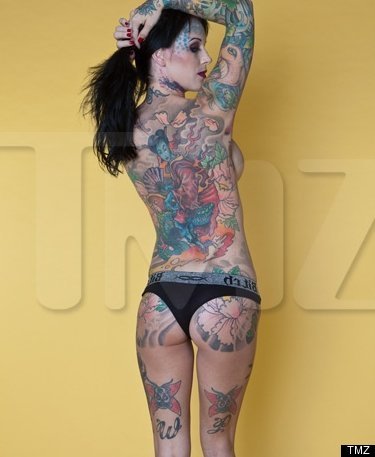 Richard Paul Fink as the Water Gnome, with nymphs Teiya Kasahara, Lisa Dimaria, and Erin Fisher
Richard Paul Fink as the Water Gnome, with nymphs Teiya Kasahara, Lisa Dimaria, and Erin Fisher

Michael Schade as the Prince

Julie Makerov as Rusalka
And yesterday I was shooting recording star Taylor Swift at MuchMusic. Both were done exclusively on the E30.
 After the near debacle of Caty Perry's drive-by photo op last month, the Much staff were back on their game for this appearance. And Taylor's people really had a handle on things as well.
After the near debacle of Caty Perry's drive-by photo op last month, the Much staff were back on their game for this appearance. And Taylor's people really had a handle on things as well.
She seems like a nice kid - still a teenager and already the highest selling recording artist on the planet - very down to earth, no attitude at all.
The paparrazi were out in force. About half a dozen of them. One guy I talked to had been trailing her all day from the moment she landed at the airport to every promo appearance she was making.
The photos were done in a smallish TV studio, and unfortunately I got squeezed to the side - had a 50/50 chance as to which way she would be facing for the interview and picked the wrong one (doh! :)
At 100 percent her eyes are really red, and they look a little puffy. I think she was having trouble with her contacts as she was really squinting under the brights lights in the studio.

I'm finding the E30's focusing a little squirrely at times. Different from the E3's, which is a surprise as the focusing modules in both cameras are supposed to be the same. I think the E30 has been tweaked a little, the actual focusing spot has been tightened slightly, and it make take some time to adjust to it.
But everything I have done has been on assignment so it hasn't been possible to directly compare the two side by side in the same lighting.
In five and a half months with the E3 I've racked up nearly 50,000 exposures, so I'm pretty well versed on how that camera behaves in similiar circumstances. There is something different about the E30's 11 point focusing, just not sure what it is.
The good news is the image quality is just outstanding. High ISO performance at 1600 ISO beats the E3 hands down. There is a tiny bit more noise, but the noise is much less digital, more film-like than the E3.
Sharpness at high ISO also seems improved, and banding has been seriously stifled on the E30. The lighting was very dim throughout the opera, but a couple shots were really under-exposed when I got sloppy with the spot meter. While I put the spot right on the target, I forgot that the minus 2.5 exp.comp applied trying to shoot the scene in matrix mode was still on. Thus they were very dark. Bringing these frames up in curves from a minus 2.5 stop exposure reveals only very slight banding. I know from experience that none of these frames would have been recoverable from the E3.
The results have excellent sharpness and detail, there is a slight green bias to the colour output, but bear in mind that everything I've shot so far has been under artificial lighting, in the case of the opera with mixed tungsten and daylight colour temperature light sources. And the MuchMusic studio lighting has a well known green bias anyway, so I'm not reading anything into it.
If the E3 had come out with this sensor it would have lit critics up to a much greater degree. It really does look like a leap upwards from the E3/E520/E420 output so far.
But this is only based on about 1800 exposures, so there may be gremlins yet to be discovered. So far I'm very pleased with the E30.
This weekend I'll be shooting WinterCity festivities (four hours shooting in the dark freezing my butt off - oh joy), then more press work and a dance performance next week. So most of what I'll be shooting with the camera will be at the extreme end of the performance envelope. Should be a good test.
BTW: with all the E3 componentry inside it people are naturally comparing the E30 to that camera. Every photo comparison features those two side by side. But I think it really is a natural evolution of the E510 and in the hand it does feel like the 'tweener' camera in the lineup. If the pricing only reflected this it would all fall into place.
The above photos were shot with the Digital Zuiko 50-200mm 2.8 lens. This lens is unique, and I think Olympus should be shouting about it. I talk to the Reuters and Getty guys about the 50-200mm all the time. They'd love the kind of versatility it brings. Yesterday the top celeb shooter in the city was asking about it again.
You tell people who shoot what they do that this compact lens starts as an L quality 200mm 2.8 and goes all the way to 400mm at just 3.5, and their mouths drop open.
This is really Olympus's true strength, and the major reason I stick with them. Their lens lineup is the most logical of all DSLR manufacturers, and the quality level is superior in most focal lengths to the competition.
One day Olympus will wake up to the fact that they are Japan's Leica and start marketing their DSLR's properly.












No comments:
Post a Comment